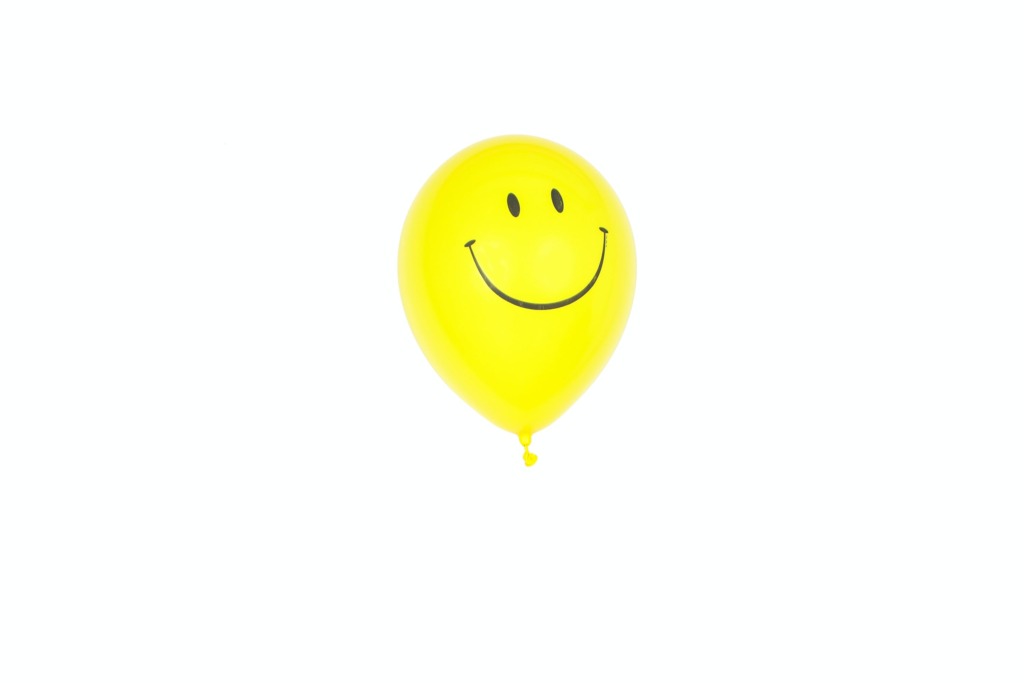
Health Anxiety: Navigating the Obsessive Grip of Wellness Worry
Health anxiety can be a distressing and debilitating experience, winding its way, everyday, into thoughts and feelings. For some it can even become obsessive…

In our dynamic society, the word ‘procrastination’ often carries a negative connotation. However, understanding procrastination and its effects can reveal a much more complex and nuanced picture.
Procrastination is not about being lazy or unproductive, as some would have you believe.
In fact, far from it.
Procrastination, at its root, is deeply intertwined with our emotions, feelings, and stress levels.
Symptoms can range from a mere annoyance to a major hindrance in personal and professional life. It’s not uncommon for people to experience anxiety and a sense of overwhelming pressure both of which can go on to cause even greater levels of postponement in the things we need, or even want to do.
Under stressful circumstances us humans tend to respond to difficult situations in one of three ways.
We run away, we run towards, or we stand still. At first anyway.
Procrastination c an be seen as the freeze response in this trio. If we stay still, stay hidden, there’s a consideration that the situation may just, well, go away.
Zero effort, no energy spent, all is well.
So, procrastination is the response, and not the cause. The real cause is highly likely to be a stressful situation (or situations) that are in existence and on-going, or imminent, and that can have the mind spiralling in fear of an outcome that is potentially far from ideal.
Perhaps for some, through more catastrophic past experiences, the freeze stress response could be a well-practiced (although unwanted), first reaction that has served well in the past. But as is said, that which we practice, we perfect. Procrastination, or a delayed response, could well be a well-honed tactic that has become habitual, even though it may not be the best response required.
If not addressed this stress/delay/stress can continue to get stronger the more we do it, if the chain isn’t at some point recognised, and broken.
This pressure can be even more intense in a bustling capital city of commerce, entertainment and expectation to perform, and where the pace of life demands constant efficiency.

Procrastination can also often be a result of an overload of stress, low mood, or depression.
When overwhelmed with tasks, our brains may use procrastination as a coping mechanism to avoid dealing with stressful situations.
This avoidance can lead to that drain and spin cycle of anxiety and depression, as the delayed tasks accumulate, build in size, and therefore can become even more daunting over time.
Interestingly, procrastination can also play a very necessary part in processing past experiences (and ‘past’ can be anything from just then, to who knows when). It allows the brain to take an all-important break, allowing you to process all sorts of emotional information in the background of your mind, subconsciously.
This mental break can be crucial in periods of high stress or emotional turmoil, providing a much-needed respite for mental health.
Of course (here’s comes the yadda yadda bit when I harp on about the things you already know…), ideally, the brain could really do with less info coming in whilst it does the hard work of running rehearsals and scenarios as it processes that/those traumatic experience(s), and perhaps giving it a break from the mountains of mood food like social media, TV, negative conversations, and all those things that trigger limbic resonance (emotional friction, let’s say)

, may well help you pass through this stage more swiftly.
Your emotional info balloon is already stretched to almost bursting after all, so if you can, try to limit the chance of the big bang by not filing it further.
Now let’s rewind back to the beginning – we know that procrastination is often about past experiences and the need for a quiet break from the noise of life, now add in those ‘lazy’ comments, or the pressure of others making you feel like you have to deliver X amount by X date, or even those (well meaning?) videos on TikTok or Instagram that show you what an effective high-intensity workout is whilst you watch from your pillow at a 180* angle to the rest of the waking world.
The result?
More depressive feelings, potentially more anxiety through comparison as you feel that your future is ‘falling behind’, more general feelings of stress and then, you guessed it… more procrastination.
Now that we can begin to see that procrastination is not the enemy here and that it’s actually a necessary part of emotional recovery, let’s start to look at how procrastinating for just the right amount of time could be helpful in certain situations.
Used as a strength as opposed to a limitation, we can start to realise that a pause in life can lead to more creativity as well as better decision-making when used strategically.
This is because by taking a step back and allowing ourselves space, time and distance from emotionally taxing situations, we can begin to provide our minds new perspectives, fresh eyes, and a little lateral thinking over more obvious literal reactions, thus allowing for more innovative and effective solutions to emerge that can be put into play, with potentially better results.
“I procrastinate just the right amount. There are things that help me get in the mood to work. Cleaning for one. Ironing is great. Taking a walk is always inspiring.”
Maira Calman – (author of 30 books)
But there is a darker side to procrastination; the fine line between necessary processing time and becoming perhaps a little too comfortable in the lack of an attempt to write some wrongs.
Procrastination, at its core, is the act of delaying or postponing tasks for the sake of a much-needed time-out, but this can all be at the expense of knowing that there will more than likely be negative consequences for doing so.
Initially, anyway.
This behaviour often arises from an aversion to the task itself or from a fear of failure within the hoped-for outcome.
And the response of ‘doing nothing’ stems from the ancient stress response built within all of us – that previously mentioned freeze part of Fight/Flight/Freeze.
The procrastinator, caught in a web of avoidance, experiences temporary relief.
However, this fleeting comfort soon gives way to heightened stress levels as deadlines loom closer and tasks continue to pile up.
A study in 2014 (‘Out of Sight, Out of Time? A Meta-Analytic Investigation of Procrastination and Time Perspective’) highlights the stress/procrastination cycle, noting that procrastination often results in thinking that is negative in self-evaluation, which then can contribute significantly to a further increase in stress levels.
These thoughts can include self-criticism, doubts about one’s abilities, and an overarching sense of doom regarding impending deadlines and uncompleted tasks.
So clearly, not all procrastination is positive and useful. So how can we combat the bad stuff and keep the good?
Let’s start with some good old Self Care Ideas.
Why? Cause they’re free, and immediately available.
Incorporating self-care ideas into daily routines is a powerful tool against the negative aspects of procrastination. Simple regular activities like a walk in the park, meditation, or taking time out to do something as small as enjoy a cup of tea (or cleaning?) can help to reset the mind and reduce the urge to procrastinate.
Start small. Micro small. You really can’t start too small. And try to write down every tiny thing you have been able to manage to begin.
The key is to grab at the low-hanging fruit, and not think that the big stuff needs to be covered straight away.
Consistency and continuity are the aim.
Try to focus intensely on each job in hand, rather than juggle 3 or 4 things at once, and see the slowing down of time as a crucial element in breaking the spell of procrastinations grip.
Living most of our days as we do, in a fast-paced environment, the need to find time for these overly simple self-care ideas is essential for maintaining balance, and the reduced chance that procrastination will take hold again sometime in the future.
Yes, exercise, maintaining a healthy diet, positive and supportive social connection (two-directional by the way!), adequate sleep and rest, are all very VERY important for most mental health concerns, but adding in daily routines that enable the slowing down of the brains signals, almost to a stop, is incredibly important for the procrastinators of the world, because chances are your brain is firing like mad waaaaaaay too often.
Solution-focused hypnotherapy is another effective way to address procrastination.
This type of hypnotherapy focuses on finding solutions and creating positive changes rather than delving into problems.
With a gentle guidance, hypnotherapy can help individuals to develop three fundamental factors for a balanced, non-chaotic sense of well-being:
intense absorption – focusing deeply on one thing at a time
cognitive flexibility – the ability to adapt one’s perspective and thinking to the ever-changing circumstances of life
dissociation – mentally disconnecting self-judgement and context from your thinking in order to see objectively through a more rational and considered approach
The role of hypnosis in this process is crucial. Hypnosis facilitates brain and behavioural changes in a natural and calming way, helping to reduce the effects of the fight or flight response, which is often triggered by stress and anxiety.
By calming the mind, hypnotherapy can help individuals to a heightened degree of focus and reduce the tendency to procrastinate.
In summary, understanding procrastination in the context of emotions, stress, and mental health is crucial. And understanding it as a necessary response instead of some pseudo-psychology proffered out from those who wish to make you feel bad about yourself because they believe “you’re lazy” (why do people feel the need to this I wonder?), we can begin to recognise it’s normality, and therefore, realise it’s a state of mind that can be altered, should you wish to.
Utilising self-care ideas and embracing solution-focused hypnotherapy can help create effective strategies for managing procrastination by addressing the underlying causality, by reducing the effects of anxiety and depression, and by harnessing someone’s need procrastinate just the right amount, turning it from a hindrance into a tool for personal growth and efficiency.

Health anxiety can be a distressing and debilitating experience, winding its way, everyday, into thoughts and feelings. For some it can even become obsessive…

From the social pressures of pub culture to the emotional crutch it can provide in times of stress, the link between alcohol and mental health is undeniable…

The experience of IBS can impact our lives in profound and painful ways – step up Gut Directed Hypnotherapy as an option for long-term relief and significant change…

Public Speaking? Ahh, dread the thought! The sweaty palms, the racing heart, the mind going blank. But with hypnotherapy, you don’t have to let it hold you back